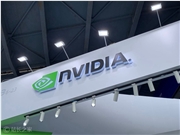At the latest CES conference, NVIDIA CEO Jensen Huang pointed out that Samsung Electronics is facing some difficulties in producing new types of artificial intelligence (AI) memory chips. These new memory chips are known as High Bandwidth Memory (HBM), which are crucial for the next generation of AI systems powered by NVIDIA chips.
During the press conference, Huang mentioned that Samsung is slower in HBM production compared to its competitor SK Hynix. He expressed confidence that despite the current challenges Samsung is facing, the partner company has the potential to overcome these difficulties. He believes that with continuous technological advancements and innovations, Samsung can make progress in this field.

High Bandwidth Memory is a type of memory specifically designed for processing large amounts of data, widely used in machine learning, deep learning, and various AI applications. Due to the rapid development of artificial intelligence, the demand for high-performance memory is also surging. Huang pointed out that if Samsung can resolve the current issues smoothly, it could bring significant changes to the entire industry.
Additionally, Huang mentioned that with the global emphasis on artificial intelligence technology, major tech companies are accelerating the development of new memory solutions to meet market demands. In this competitive environment, Samsung's performance is particularly important. He believes that as a leading global semiconductor manufacturer, Samsung has the capability to overcome current challenges and will launch more competitive products in the future.
Overall, despite the challenges Samsung faces in the design and production of AI memory chips, Huang's positive attitude reflects an optimistic outlook for its future. With the continuous evolution of technology, Samsung is expected to regain its leading position in this field.










